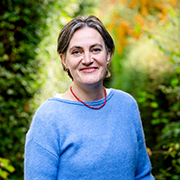Epidemiological framework of older people in Flanders who die with cancer
Background
There is relatively little research done on the end of life of older people (65 years or more) with cancer, with most cancer research focusing on a younger population. This despite the fact that many older people die of cancer or with cancer: the mean age at diagnosis in Belgium is 67 years for men and 65 years for women and about two in three men and three in four women over the age of 75 will get cancer.
The needs of older people with cancer may differ considerably from those of younger people with cancer. For example, they are more likely to suffer side effects from treatments and have a less robust social network they can rely on for care and support. With the growing proportion of elderly people in the Belgian population, and thus the number of older people with cancer requiring care either at home or in a formal care setting, it is important to investigate the circumstances surrounding the end of life of this group.
Aims
The primary aim of this project is to provide a broad epidemiological framework of older people (65 years or more) in Flanders who die with cancer, specifically paying attention to those who live in residential homes compared to those living at home, and older people with cancer compared to older people without cancer. We will study where and in which circumstances older people with cancer die, where they receive care, how often they move between care settings, whether they receive palliative care, the frequency of advance care planning and the symptom burden in the last week of life.
Methods
This project will utilize existing post-mortem databases for quantitative analyses, specifically from the IPoD study (International Place of Death), EURO SENTIMELC study (Sentinel Networks Monitoring End of Life Care), SHARE data (Survey of Health, Ageing and Retirement in Europe) and IMA data (InterMutualistisch Agentschap).

